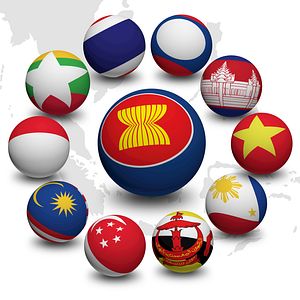Southeast Asian countries bagged 18 Olympic medals in Rio de Janeiro: five golds, ten silvers, and three bronzes.
The gold medals were won in badminton, swimming, weightlifting, and shooting. Singapore and Vietnam finally each won their first gold medal since joining the Olympic Games.
Singaporean swimmer Joseph Schooling gained instant global fame after defeating Olympic champions Michael Phelps of the United States and Chad le Clos of South Africa in the 100m butterfly event. Sports fans highlighted that Schooling was able to defeat the legendary Phelps, who also happens to be his sports idol. Schooling first met Phelps eight years ago when the Singaporean was just barely a teenager who dreamed of becoming a great swimmer someday.
Schooling may have been the region’s highest profile winner, but Southeast Asia’s first gold medal at Rio was won by Thailand’s Sopita Tanasan, who dominated the weightlifting women’s 48 kilogram category. News of her victory was cheered most especially by her provincemates from Chumphon. In honor of her Olympic triumph, local officials in her province have vowed to pave the road leading to her remote village.
Thailand’s second gold medal was won by Sukanya Srisurat, who set an Olympic record of 110 kilograms for weightlifting in 58 kilogram category.
Aside from the two golds, Thailand’s weightlifters also won a silver and a bronze. Thailand also won a silver and a bronze in taekwondo.
The victory of Vietnamese shooter Hoang Xuan Vinh in the 10m air pistol category was also memorable because it gave Vietnam its first ever Olympic gold medal. Sports commentators mentioned that Vinh’s victory was remarkable since he is short-sighted and he reportedly practiced with paper targets and a shortage of ammunition because of funding constraints. He also won a silver medal in the 50m air pistol event.
Indonesia bagged a gold medal in badminton, which compensated for its failure to bring home a medal in the 2012 London Olympics. Aside from the gold in badminton, Indonesia also won two silvers in weightlifting.
The Philippines didn’t grab a gold medal in Rio but it got its first Olympic medal in 20 years after Filipino weightlifter Hidilyn F. Diaz won a silver medal.
Malaysia also failed to bring home a gold medal but it recorded its best Olympic performance after winning three silvers in badminton, a silver in diving, and a bronze in cycling. The loss of Lee Chong Wei, currently ranked world number one in badminton, disappointed many fans who hoped for an easy victory after he defeated his main rival in the semi-finals.
Overall, Southeast Asia’s performance this year is more than satisfactory. Vietnam and Singapore finally won golds, a Thai weightlifter set a new Olympic record, Malaysia grabbed five medals, and the Philippines won its first medal since 1996.
Looking ahead, sports officials across the region should systematically study the performance of its athletes in Rio to better prepare for the 2020 Olympics in Tokyo.
The medal tally in Rio should also be used to evaluate the sports programs of each country in the region. For instance, the surprising victory of a weightlifter should convince Philippine officials to give more attention to weightlifting and other ignored sports instead of focusing too much on basketball.
The phenomenal victory of Schooling was greeted by Singaporeans who are critical of the government’s Foreign Sports Talent Scheme, which gives Singaporean citizenship to promising players from other countries. Now critics can argue that a local athlete has the potential to compete in global games as well.
Hopefully, the outstanding performance of Southeast Asian athletes in Rio will inspire greater public support and government funding for sports programs in the region. One hopes that this could lead to better training and more modern facilities for sports enthusiasts and future Olympic champions.

































